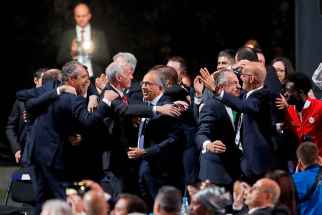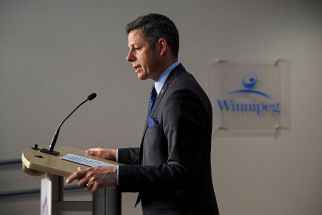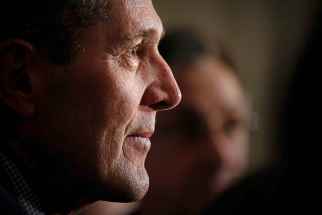Tattoo removal erases stain of Islamic State
Read this article for free:
or
Already have an account? Log in here »
To continue reading, please subscribe:
Monthly Digital Subscription
$0 for the first 4 weeks*
- Enjoy unlimited reading on winnipegfreepress.com
- Read the E-Edition, our digital replica newspaper
- Access News Break, our award-winning app
- Play interactive puzzles
*No charge for 4 weeks then price increases to the regular rate of $19.95 plus GST every four weeks. Offer available to new and qualified returning subscribers only. Cancel any time.
Monthly Digital Subscription
$4.99/week*
- Enjoy unlimited reading on winnipegfreepress.com
- Read the E-Edition, our digital replica newspaper
- Access News Break, our award-winning app
- Play interactive puzzles
*Billed as $19.95 plus GST every four weeks. Cancel any time.
To continue reading, please subscribe:
Add Free Press access to your Brandon Sun subscription for only an additional
$1 for the first 4 weeks*
*Your next subscription payment will increase by $1.00 and you will be charged $16.99 plus GST for four weeks. After four weeks, your payment will increase to $23.99 plus GST every four weeks.
Read unlimited articles for free today:
or
Already have an account? Log in here »
Hey there, time traveller!
This article was published 13/06/2018 (2761 days ago), so information in it may no longer be current.
It felt like spatters of hot bacon grease or twacks from a snapped rubber band as a laser began zapping the Islamic State tattoo from her skin.
“It’s nothing,” Faeza Mejo said through an interpreter as Bionic Tattoo Removal owner Chris Woywada went to work, blasting away the indelible marks in the young Yazidi woman’s dermis.
In 2014, Mejo was 18 years old and eight months pregnant when she, her husband and his family tried to flee Islamic State invaders in northern Iraq. She never saw her husband again.
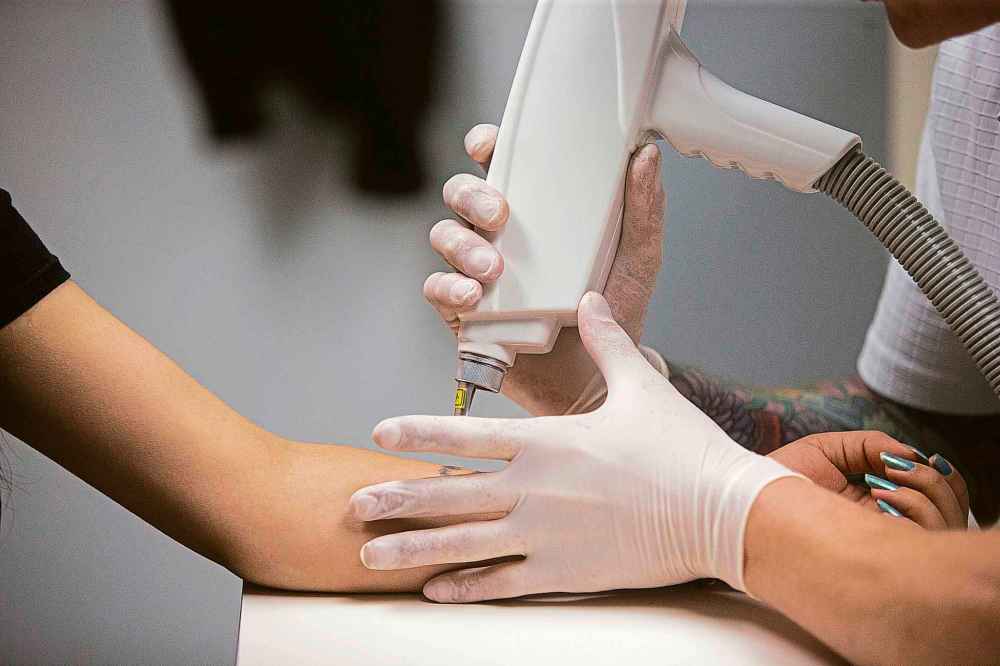
Over the next three years, Mejo was beaten, starved, bought and sold to 10 different Islamic State (IS) terrorists who’ve been accused of committing genocide against ethnic Yazidis.
Her tattoo was made using a needle and eyeliner, she said through an interpreter. She did it herself when she was held captive by her third Islamic State “owner.” He promised not to sell her again if she proved her loyalty to him.
She attempted to tattoo his name on her arm, but he sold her anyway and told her she was now damaged goods and that her family — if she ever made it back to them alive — would never accept her. She was sold another seven times before her final owner decided he, too, wanted to escape IS. When they crossed into Kurdish-held territory, he didn’t just let her go. He made Mejo’s father scrape together US$12,000 for her freedom.
In the fall, she arrived in Winnipeg with her young son, Harman, and shared her story with the Free Press in May because she wants the public to know about the Yazidis’ struggles.
When a friend sent Woywada a link to the Free Press article about the 21-year-old Yazidi woman wanting to get rid of her IS tattoo, the certified laser tattoo removal specialist said he wanted to help.
He connected with Mejo’s family friend and restaurateur, Sinan Aboud, who was raising money from food sales during Ramadan to pay for her tattoo removal. Woywada offered Mejo’s first treatment for free and is charging half price for subsequent one. It will take several treatments with several weeks of healing time between each, Woywada said.
He said he’s removed a tribal neck tattoo from an east African woman and another woman’s face tattoos that were part of her country of origin’s culture but attract unwanted attention here in the West.
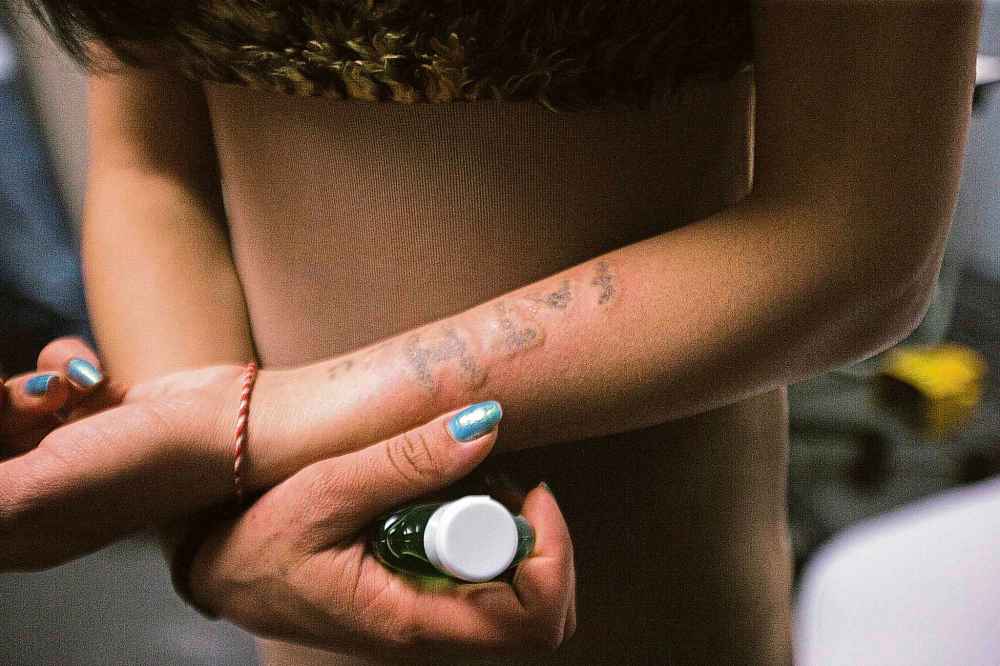
“For many people, removal is an emotional thing,” Woywada said Wednesday morning before Mejo arrived at his West End office for her first session. He met with her and an interpreter earlier for a consultation and wasn’t expecting the process to overwhelm her.
“She could handle almost everything after what she’s been through,” Woywada supposed. “She seemed OK.”
Still, he said, post-traumatic stress disorder sometimes won’t hit people until they get to a safe place and it could hit Mejo in his office.
When she arrived, Mejo said she was nervous but sat perfectly still on a stool. Wearing protective goggles, she rested her tattooed left arm on the treatment table while squeezing a stress ball in her right hand. Woywada’s laser clicked as he began pelting away the indelible reminder of the horrors she survived.
“We’re almost done,” he told Mejo, who didn’t flinch. “Good job,” he said, as she squeezed the stress ball so hard her knuckles turned white. Within a few minutes, the session was finished.
“Mumtaz,” said Mejo, uttering the Arabic word for “excellent.”
Getting the tattoo done was much worse then getting it removed, she said. Mejo recalled it was very painful and she battled an infection as her arm swelled to twice its size from the festering eyeliner ink wounds. After her first laser removal session, the tattoo faded noticeably then turned red like a sunburn.
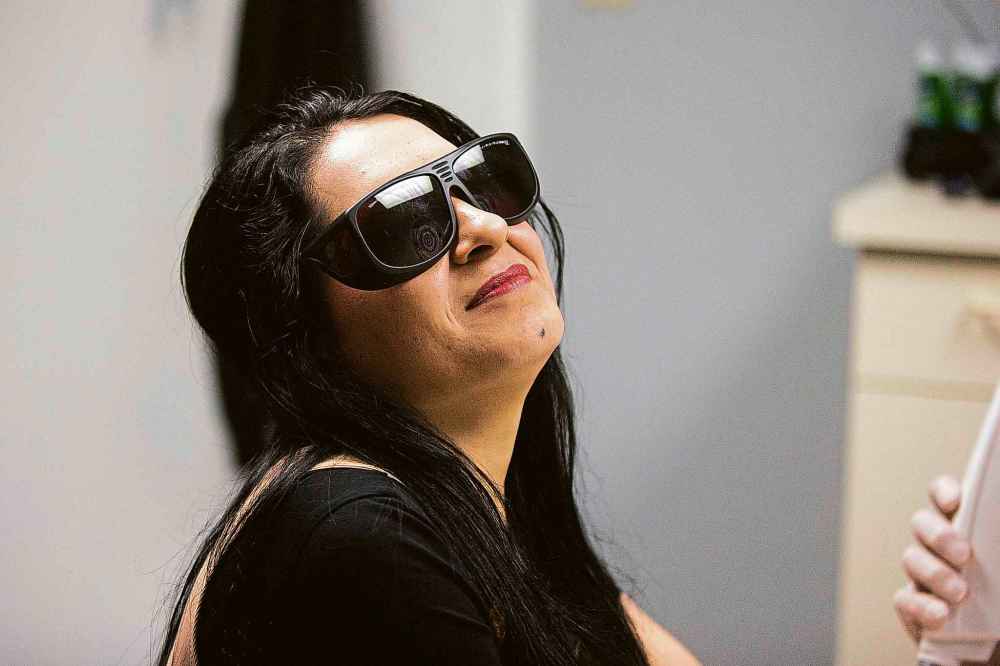
“That looks really good,” Woywada told her before giving her interpreter instructions for caring for the affected area, including not to scratch, soak, rub or bandage it. “If it blisters, don’t pick it,” he added.
“Thank you,” Mejo said in English, smiling at the stain of IS that’s slowly being wiped out.
carol.sanders@freepress.mb.ca

Carol Sanders
Legislature reporter
Carol Sanders is a reporter at the Free Press legislature bureau. The former general assignment reporter and copy editor joined the paper in 1997. Read more about Carol.
Every piece of reporting Carol produces is reviewed by an editing team before it is posted online or published in print — part of the Free Press‘s tradition, since 1872, of producing reliable independent journalism. Read more about Free Press’s history and mandate, and learn how our newsroom operates.
Our newsroom depends on a growing audience of readers to power our journalism. If you are not a paid reader, please consider becoming a subscriber.
Our newsroom depends on its audience of readers to power our journalism. Thank you for your support.

